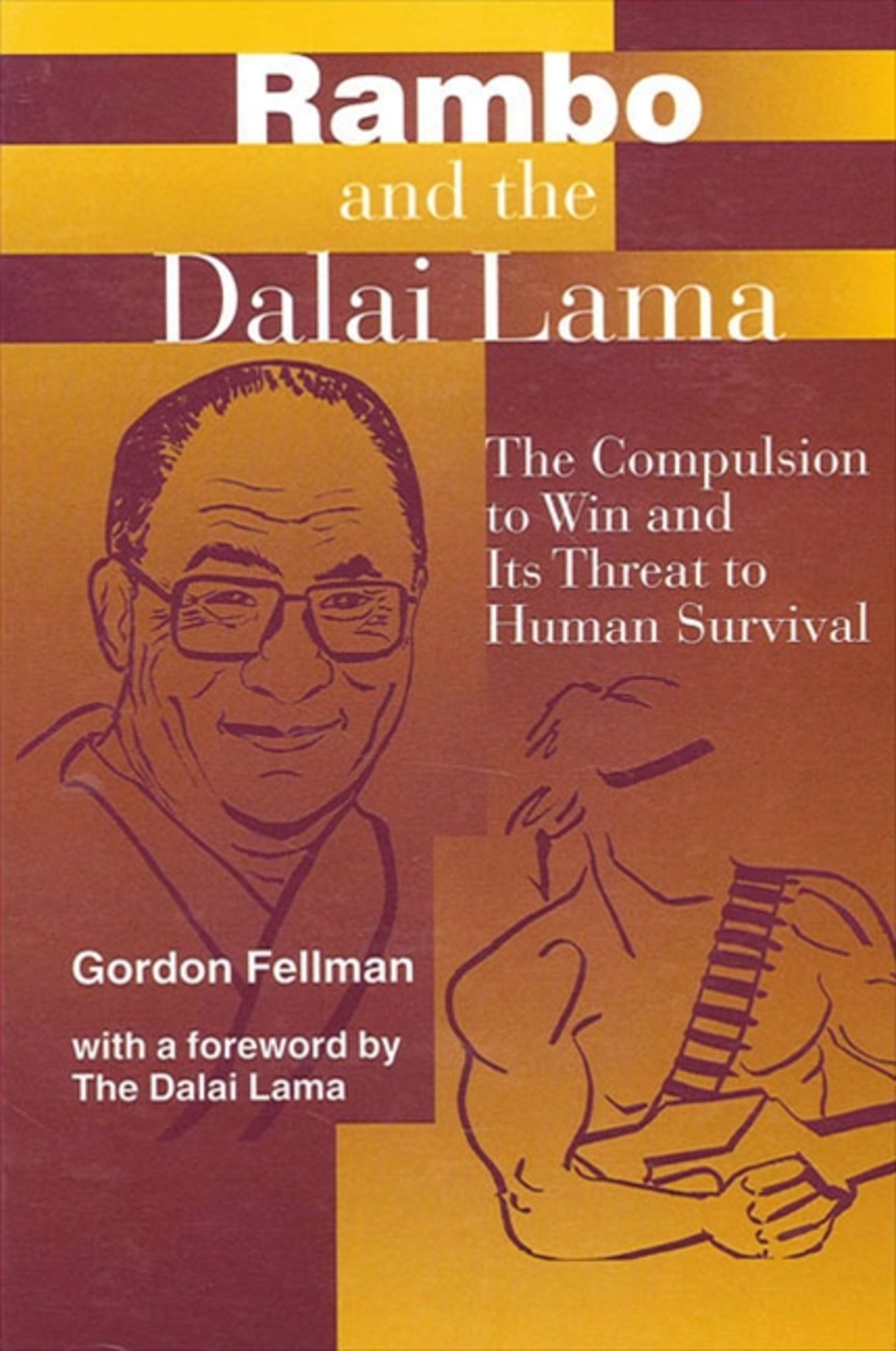We're sorry. An error has occurred
Please cancel or retry.
Rambo and the Dalai Lama

Some error occured while loading the Quick View. Please close the Quick View and try reloading the page.
Couldn't load pickup availability
- Format:
-
16 July 1998

Contrasts two approaches to conflicts and their resolution: the aggressive, confrontative elements of the adversary paradigm represented by the fictional figure Rambo, and the compassionate non-violence of the mutuality paradigm advocated by the Dalai Lama.
Rambo and the Dalai Lama suggests that the assumption that human life is based on conflicts of interest, wars, and the opposition of people to each other and to nature exists as a paradigm that supplies meaning and orientation to the world. An alternative paradigm sees cooperation, caring, nurturing, and loving as equally viable ways of organizing relationships of humans to each other and to nature. Fellman sees this shifting emphasis from adversarialism to mutuality as essential to the survival of our species and nature itself.


"This may be one of the most important books to come out in this transition to the twenty-first century. It opens up a way of thinking that can lead to social design and behavior changes at every level from the family to the international system, moving away from current trends of increasing violence. Fellman's skillful analytic blend of social psychology and sociology in explaining the interrelationship of social institutions and human behavior offers a new way out of classic sociological impasses.
"Rambo and the Dalai Lama is highly readable, and made more so by the disarming way Fellman draws on his own personal experiences to illustrate the conceptual points he is making, without for a moment sacrificing the quality of his intellectual argument." — Elise Boulding, Professor Emerita, Dartmouth College
"Fellman's book is a brilliant analysis of the adversary paradigm—the self-destructive mind-set that dominates our world today, molding the thought processes not only of those few who seem (on the surface) to profit from it but also of the vast majority who are clearly injured by it. Fellman's notion of the "adversary compulsion" is a truly original contribution to our understanding of how and why unnecessary conflict persists. He lays bare its psychological and social foundations and provides convincing evidence of its futility and irrelevance for our times. Deftly combining scientific data with personal experience and insights into popular culture he provides us with a valuable map both of the morass in which we now find ourselves and of the path that will lead us out." — Philip Slater, author of A Dream Deferred: America's Discontent and the Search for a New Democratic Ideal
"James Joyce famously described the Irish troubles as 'one bloody fool hitting another bloody fool over bloody nothing.' In a time when mindless adversarialism and bloody conflict are too often the norm, Gordon Fellman's sane and humane attempt to understand the roots and the cure of such conflict is admirable and wholesome. With imagination and a sense of struggle, Fellman combines sociological and personal insight in this exciting new work." — Rodger Kamenetz, author of The Jew in the Lotus and Stalking Elijah
Foreword
Acknowledgments
Part I. Background, Method, Problem
1. On Cruelty and Social Change
2. To Overcome or Not to Overcome: That is the Question
Part II. Paradigm Shift
3. "Oh to be Torn 'twist Love and Duty"
4. Two Paradigms
5. Two Compulsions
6. The Terrifier
Part III. Adversary Rituals of Coercison
7. Rituals of Killing and Revenge
8. Rituals of Undermining
9. Rituals of Supposed Superiority
10. Rituals of Faulting
Part IV. Mutuality under Way
11. The Other As Complement Rather Than Threat
12. The Emergence of Empathy
13. Reapproapriating the Self
14. Seeds of Mutuality I: Old Seeds in Old Institutions
15. Seeds of Mutuality II: New Seeds in Old Institutions
16. Seeds of Mutuality III: New Seeds in New Institutions
Part V. Conclusion
17. Three Stretches toward Globalism
Notes
Bibliography
Index



